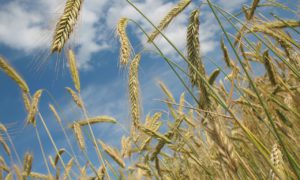Understanding Earthquakes: 10 Key Facts You Need to Know

Earthquakes are a natural phenomenon that occur when the Earth’s tectonic plates shift and release energy. These seismic events can range in size from small tremors to devastating disasters that can cause widespread destruction.
Here are ten essential facts you should know about how earthquakes happen:
1. Tectonic Plates: Earthquakes occur when enormous slabs of rock called tectonic plates move past each other.
The movement can be slow or sudden, and it causes the release of energy that creates seismic waves.
2. Fault Lines: The majority of earthquakes happen along fault lines, where two tectonic plates meet. When pressure builds up along a fault line, it can cause the plates to suddenly slip, resulting in an earthquake.
3. Seismic Waves: When an earthquake occurs, it produces seismic waves that travel through the Earth’s crust.
These waves can be detected by seismometers and are used to measure the earthquake’s magnitude.
4. Magnitude: The magnitude of an earthquake is a measure of the amount of energy released during the quake.
The Richter scale is used to measure the magnitude of an earthquake, with larger numbers indicating a more powerful earthquake.
5. Aftershocks: Aftershocks are smaller earthquakes that occur after a larger earthquake.
They can continue for days or even weeks after the initial quake and can be just as damaging as the initial earthquake.
6. Tsunamis: Tsunamis are large waves that are caused by underwater earthquakes or other disturbances.
They can cause widespread destruction and are a significant danger to coastal areas.
7. Seismology: Seismology is the study of earthquakes and the seismic waves they produce.
Scientists use data from seismometers to learn more about how earthquakes happen and to predict future earthquakes.
8. Preparedness: It’s crucial to be prepared for earthquakes, especially if you live in an area that is prone to seismic activity.
This can include having an emergency kit with supplies like food, water, and first aid supplies, and knowing what to do during an earthquake.
9. Early Warning Systems: Early warning systems can help alert people to an impending earthquake, giving them time to take precautions and protect themselves.
10. Ongoing Research: Scientists are continually researching earthquakes and the factors that contribute to them.
This research can help us better understand earthquakes and potentially predict them with greater accuracy.
In conclusion, earthquakes can be hazardous and destructive, but by understanding how they happen and being prepared, we can better protect ourselves and our communities.












































